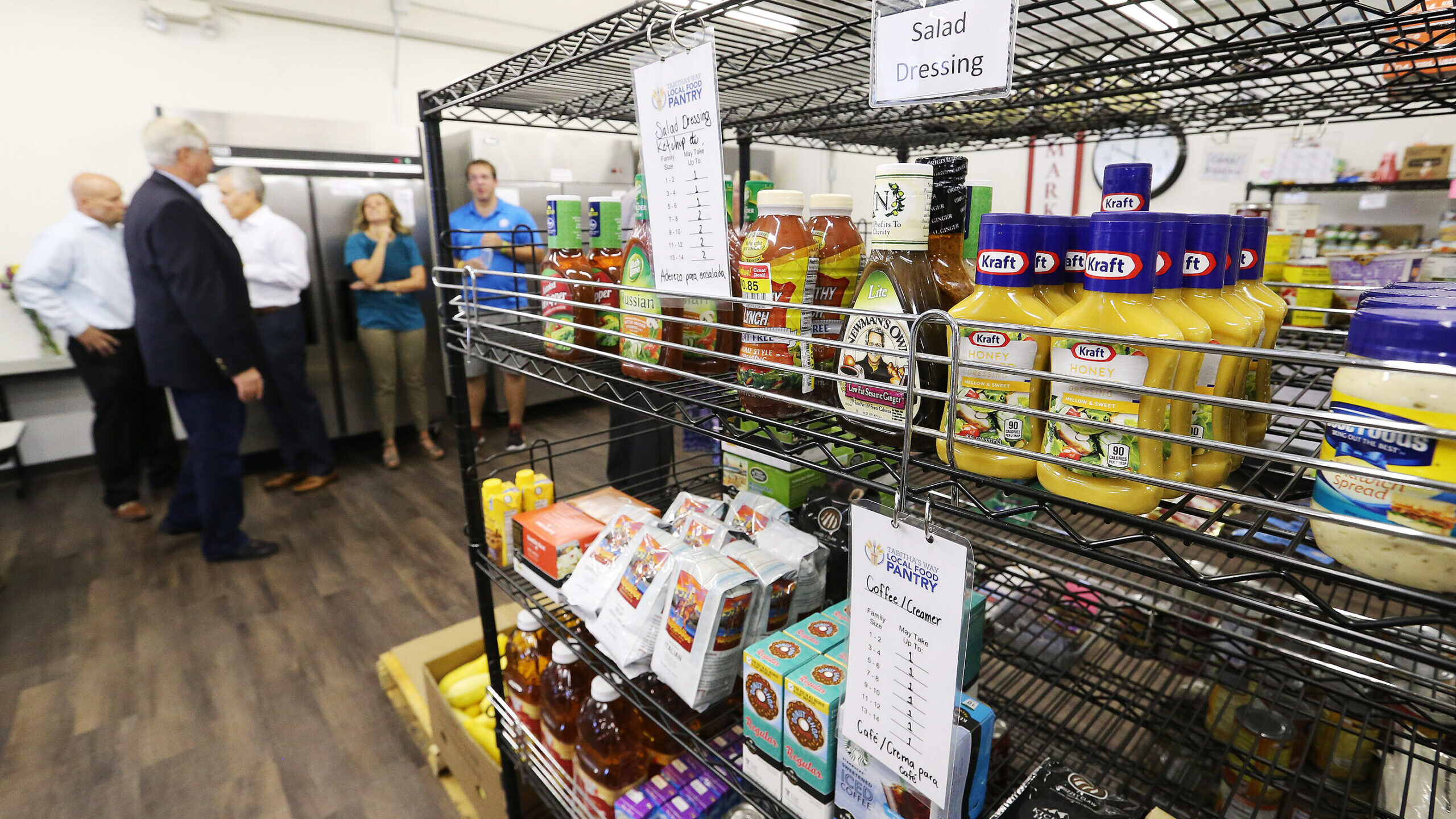DAVE & DUJANOVIC
Roots Charter High School — The school where kids learn by working on a farm
Oct 30, 2018, 2:32 PM

Roots Charter High School student Xander Hemmert works with hogs at the school farm in West Valley City on Tuesday, Aug. 21, 2018. (Jeffrey D. Allred / Deseret News)
(Jeffrey D. Allred / Deseret News)
In a time when most schools are rushing to add more technology, Roots Charter High School is taking a different approach. It’s a high school equipped with a five-acre farm, where every lesson – from Math class to English class – ends with the students applying what they’ve learned on the farm.
The school isn’t designed to create a new generation of farmers. Instead, it’s meant as a hands-on way for students to learn some of the core concepts kids struggle with at school.
The school’s principal and founder, Tyler Bastian, spoke to KSL Newsradio’s Dave & Dujanovic to explain why he thinks that kids learn better when they get their hands dirty than when they stare at iPad screens.
“We’re not trying to teach a kid that his only option in life is to become a farmer,” Bastian says. “We use the farming really as a way to validate or authenticate education.”
A day at Roots Charter High School

Roots Charter High School student Kaedynce Wallace feeds an alpaca at the school farm in West Valley City on Tuesday, Aug. 21, 2018. (Jeffrey D. Allred / Deseret News)
A typical day in the life of a Roots Charter High School student is, in some ways, much like a day at any other school.
Like at any other school, the students have classes in the core subjects of Math, English, and Science. But at this school, the learning is hands-on.
In Science class, the students might run experiments in the greenhouse to study the reproductive cycles of tomatoes. In English class, they might interview farmers for an article on local food production. And in Math class, they’ll go out into the field and use geometry to plot gardens and barn trusses.
The hands-on focus, Bastian says, helps the students see a real, practical use for what they’re learning.
“Most of our students come to our school, and they are multiple grade levels behind in their core subjects,” Bastian told Dave & Dujanovic. “This is the first time they’ve ever understood adding because they’re out on the farm using their hands.”

A goat and an alpaca are seen in pens at Roots Charter High School farm in West City on Tuesday, Aug. 21, 2018. (Jeffrey D. Allred / Deseret News)
But learning doesn’t end with the core subjects. Bastian says that many of the students become so passionate about the farm that they come in before classes begin to feed the animals, clear out weeds, and harvest vegetables.
That’s not a chore for these students. Bastian says that many of the students who end up at Roots Charter High School are kids who struggle to stay interested in standard pen-and-paper classrooms. For them, the chance to stick their hands in the mud is part of the incentive.
“They’re pretty disengaged with learning,” Bastian says. “The benefit of the farm is it gives them something to look forward to.”
Hands-on learning instead of technology

Roots Charter High School student Jesus Garcia moves a steer at the school farm in West Valley City on Tuesday, Aug. 21, 2018. (Jeffrey D. Allred / Deseret News)
Roots Charter High School isn’t a school that offers technology in every classroom. That, Bastian says, is by conscious choice.
“I don’t want to be a high-tech school,” Bastian says. “I don’t think they need more technology. I think they need less.”
Though many schools today offer online courses or “one-to-one” classes that provide a computer to every student, Roots Charter High School has deliberately pushed technology away so that students can have more time interacting with ideas, parts of the farm, and each other.
“We’re a character-based school in many ways,” Bastian says, “and I would say a computer or online education is probably the worst way to teach character.”
That’s not to say that technology is completely banned from the school. Students are still allowed bringing cell phones in with them, but going out into the farm makes it all but impossible for them to waste their class time staring at Facebook. As Bastian puts it, “It’s pretty tough to pick a pumpkin if you’re staring at a phone.”

Roots Charter High School student Xander Hemmert works with hogs at the school farm in West Valley City on Tuesday, Aug. 21, 2018. (Jeffrey D. Allred / Deseret News)
Instead of screen-time, his students get real-life experiences that most students will never have.
Recently, students at the school were called out to the farm to help a sow struggling to develop piglets that were too big to pass through her birth canal. The students, Bastian says, dove right in to help her, putting on gloves and doing everything they could to save the mother’s life.
“Some of these kids have never even seen a pig until they got to the school,” Bastian says, “and within a couple of months, they were putting on a glove that went up to their shoulder and they were trying to help this mom deliver those piglets.”
The sow didn’t survive. Despite the school and the students’ best efforts, she died in childbirth while a group of teenagers frantically tried to save her life.
It was an emotional moment — but the kids, Bastian says, came out of it feeling proud of what they’d tried to do.
“You would’ve thought they’d killed a dragon,” he says. “These kids had conquered something.”
A moment like that, Bastian says, is one most people won’t have their whole life. Those students got a profound, first-hand experience with birth, death, and the whole circle of life.
“You can’t teach that on a whiteboard.”
More to the story
If you missed Dave & Dujanovic’s interview with Tyler Bastian live on KSL Newsradio, you can still catch everything he had to say on the Dave & Dujanovic podcast.
Dave & Dujanovic can be heard weekdays from 9 a.m. to noon on KSL Newsradio. Users can find the show on the KSL Newsradio website and app, as well as Apple Podcasts and Google Play.















